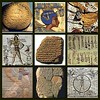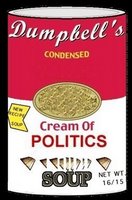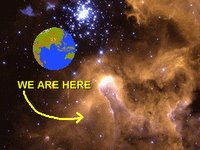Whether Pigs Have Wings And Fly In That Inverted Bowl They Call The Sky

"The time has come," the Walrus said,
"To talk of many things:
Of shoes, and ships, and sealing wax..
Of cabbages, and kings..
And why the sea is boiling hot..
And WHETHER PIGS HAVE WINGS."
(Lewis Carroll, 'The Walrus and the Carpenter' from "Through the Looking-Glass and What Alice Found There", 1872)
PIGS FLY?
Well, they do figuratively at least. I am sure you have heard the phrase, "Yeah, when pigs fly!" This is usually part of a disparaging reply. It is said to express the meaning that whatever the other person has said, is unlikely to ever happen. So, I guess in human terms, the idea of flying pigs is preposterous. A pig can always hop an aeroplane, I suppose? Although this might be classified technically as cheating, it IS flying none the less.
Now the imagery of pigs having wings is a little more unlikely if you ask me. I suppose a pig with wings would be one that has taken on the characteristics of an angel. (The one on the book cover has an angelic look on his little snout?) Angels are claimed to be predominately of human form with wings. So, if a pig takes on the characteristics of a human (aka it finds itself with wings), it may be said to have undergone the process of anthropomorphism.
(Anthropomorphism is the attribution of human motivation, characteristics, or behaviour to inanimate objects, ANIMALS, or natural phenomena.)
Contigent to this, is the idea, that if it was a human-like angel to start with, and it took on the face of a pig, this process may be interpreted as theriomorphism. (Theriomorphism is the ascription of animal characteristics to humans. It is the belief that gods exist in animal form and it could be seen as 'quid pro quo' to anthropomorphism.) One is, I suppose, the opposite of the other, except for a few slight differences.
Similar to an anthropomorphism, a zoomorphism is a figure of speech which ascribes animal characteristics to God. The purpose of a zoomorphism is give us an understanding of an aspect of God by using an illustration of an animal characteristic. He will cover you with His pinions, and under His wings you may seek refuge; His faithfulness is a shield and bulwark. - (Psalm 91:4)
So zoomorphism is the attribution of animal characteristics or qualities to a god and the use of animal forms in symbolism, literature, or graphic representation. Human beings specialise in the 'art of zoomorphism' and it is truly an "art form", as evidenced throughout human history in our literature, fine arts, music and dance.
Now, the pig, swine, or boar doesn't undergo motivational, behavioural and characteristic changes of its own volition. Humans are the instigators of these processes and to what purpose?
An example of this process is when a person is said to be "as greedy as a pig." To the human eye, the pig's eating habits appear to be decidedly indelicate. Because we consider this behaviour distasteful in ourselves, we ascribe the undesirable behaviour of greediness upon the pig and in doing so, in some way, alleviate the burden of that behaviour in ourselves. This is an example of how we negatively ascribe human characteristics to pigs. Thankfully, we also ascribe positive ones.
The graphic accompanying this page is also an anthropomorphic one as the pig is depicted displaying human behaviour. That is, "PIGASUS" is flying a kite.) *wink* It is also a play on words. In greek mythology, 'Pegasus' was a winged horse that with a stroke of his hoof caused the fountain Hippocrene to spring forth from Mount Helicon. He is a symbol of high flying poetic imaginations. In 'my myth' I have used the cover of the book, "The Te Of Piglet" and anthropomorphised some meanings of my own.
Piglet, from the book, "The Te of Piglet" (1992), by Benjamin Hoff is originally a character from A.A. Milne's book "Winnie The Pooh" (1926). Milne anthropomorphised an animal, piglet, in this famous book. Piglet is a very small, timid, pink pig, about 10 inches tall who likes to wear a long pink and black striped shirt. He is one of Winnie The Pooh's favourite friends. Even though he is small, his love for his friends is larger than most. Benjamin Hoff has used the character and personality traits assigned to piglet, by Milne, in order to explain and explore the concepts of Taoism.
Primarily, human beings anthropomorphise animals because it suits us to do so. By anthropomorphising an animal we alter its contextual meaning within the human world. It becomes a symbol of something else, even though in essence it may retain its former appearance. Its prescriptors change as it trots or flies into the esoteric world of symbolism.
Symbolism can suggest "intangible conditions" or "truths by artistic invention" Humans use these 'symbol-making skills' in an attempt to explain 'intangible conditions'. (For example: If one knows little about fertility but has observed that pigs are particularly successful at breeding; the 'artistic invention' of creating an amulent of a sow to wear around the neck, or of creating a 'Pig Goddess' to plead one's case to, is not so far-fetched.)
Some degree of anthropomorphism or theriomorphism is characteristic of many religions and philosophies. Evidence of this is found in Animism, Animatism, Buddhism, Hinduism, Paganism, and Shamanism. It is found in ancient legends, folklore, and Greek and Roman Mythology. Totemism, fetishism and other worship rituals also contain these concepts.
Anthropologists attempt to identify these forces at work. A british anthropologist, Sir Edward Burnett Tylor, argued in 'Primitive Culture' (1871) that animism is a primary source of anthropomorphic behaviour. (Animism is the belief in personalized, supernatural beings that often inhabit ordinary animals and objects.) It derives from people's self-conscious experience of the 'intangible', such as one's reflected image or dreams. Tylor describes it as the most primitive and essential form of religion.
Consequently, the symbolism associated with the pig is endemic. It flows through human history, and though the roots may be ancient and tribal; these beginnings impact upon the human culture of the present. Because the desire to imbue symbols with meaning is an on-going process, the symbol of the pig also has a modern and global context. This has resulted in layers of meaning, some of which are astoundingly contradictory.
So the pig has been seen as a deity, a god and a goddess. It has been a totem animal, a fetish, an amulet and a mascot. Wherever there has been the need, (or a set of 'intangible conditions'), human beings have deliberately and haphazardly, 'artistically created' the anthropomorphism of the humble pig. I say, 'humble pig', as this is one of the many ways in which the pig has been anthropomorphised. ("The Te Of Piglet", remember?)
It is but one animal to whom so many human characteristics, motivations and behaviours have been ascribed. These human attributes have been either positve of negative depending on the human purpose. Consequently, the attributes ascribed to pigs are also both.
And what about the inverted bowl? (which is an ancient poetic description of the sky or the heavens) Well, I guess it rolls on as helplessly and powerlessly as you and I? It matters not our protestations, beseechings and implorings. For after all, if "pigs have wings and fly" in the atmosphere, it appears to be largely because We have chosen for them to do so. (*wink*)
"And THAT INVERTED BOWL WE CALL THE SKY,
Whereunder crawling coop't we live and die,
Lift not thy hands to It for help - for It
Rolls impotently on as Thou or I."
Omar Khayyám (11-12th century), Persian astronomer, poet. The Rubáiyát of Omar Khayyám, translated by Edward Fitzgerald (1859).
PS: "No question, now, what had happened to the faces of the pigs. The creatures outside looked from pig to man, and from man to pig, and from pig to man again; but it was already impossible to say which was which."
(George Orwell , 'Animal Farm')



























